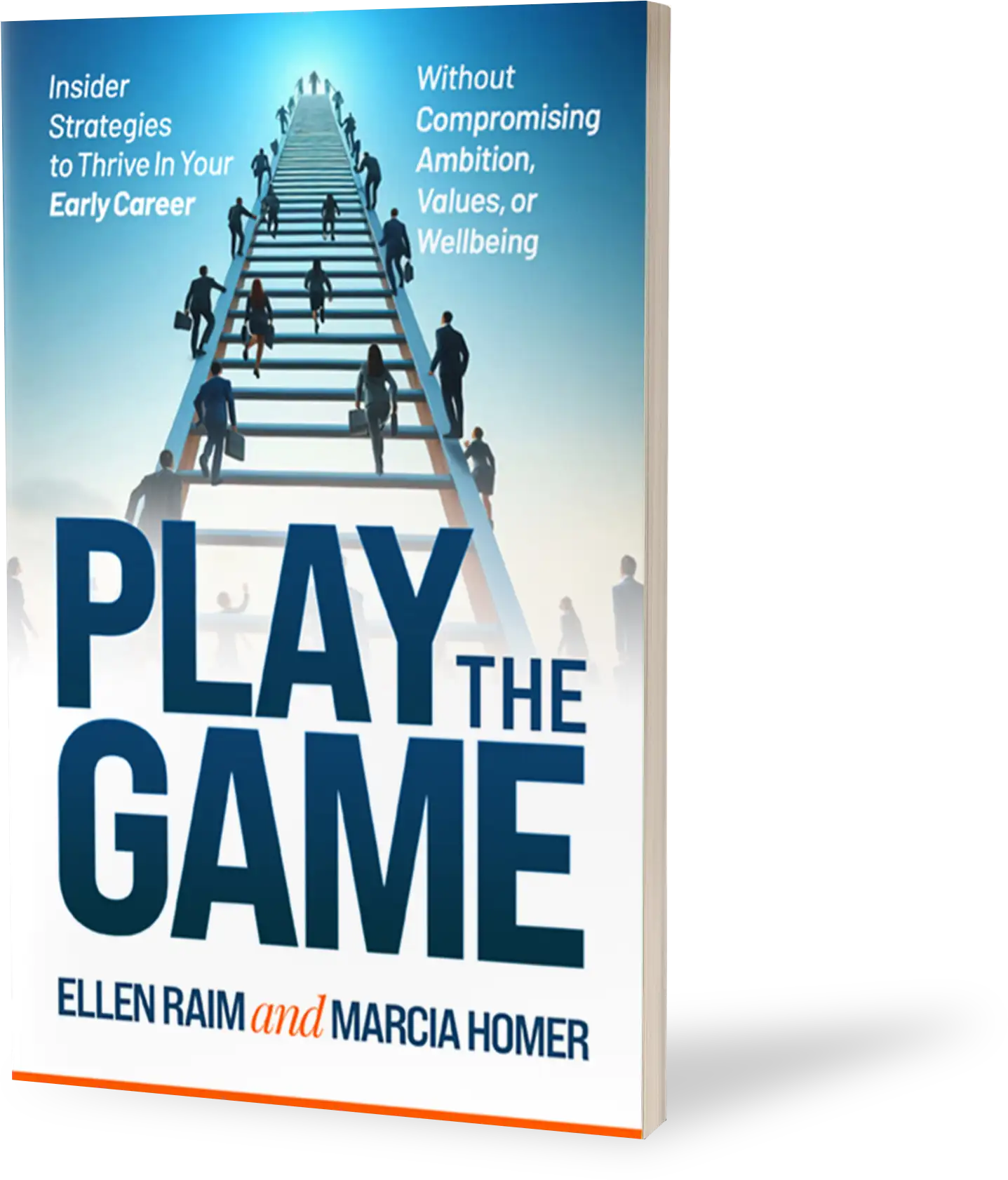I work with early career professionals to help them quickly master the skills that fast track success. One of the ways I make sure that I am giving the best advice possible is to ask senior leaders what they they knew earlier in their career that would have helped them shine. Recently, two different leaders said almost the exact same thing:
“You own your own growth. You own your own direction.”
At first glance, it sounds like something you’d find on a motivational poster. But the more you unpack it, the more real it becomes.
Because honestly, most organizations do a pretty lousy job of doing this for you. What formal help there is available is probably not in full force right now either given the volatility of the workplace. Right now jobs are less clearly defined. Managers are stretched thin and most roles are evolving faster than HR can write job descriptions. Which all means that waiting around for a promotion, a program, or a plan to guide your next step is a risky strategy.
You have to figure out how to grow your career yourself.
Growth is More Than Training
When people think about professional development, they often jump to formal programs: training workshops, certifications, LinkedIn Learning courses. These absolutely have value. But if you talk to people who’ve moved up quickly, or who’ve carved out unique career paths, you will usually find that the most important growth happened elsewhere. It happened:
- when they got close to someone who taught them the ropes.
- when they volunteered for something outside their job description.
- when they spoke up and said, “how do I become part of that project.”
Formal training helps you build skills. But career growth also requires big-picture thinking and the correct context. You need an understanding of how decisions in your company are made, what matters to the business, and where you can add value. This kind of learning usually comes from relationships, not classes.
Mentorship Isn’t Optional, It’s Strategic
If you want to grow, find someone who sees your potential and is willing to tell you the truth. Ideally, more than one person. Someone who will give you the break you need to learn a particular skill. Someone else to help you navigate the politics. Another to remind you that you’re capable, even when it doesn’t feel like it.
I heard a story once about just such a mentor/mentee relationship. A gentleman said that early in his career, he was doing great work but wasn’t getting tapped for bigger opportunities. His mentor pulled him aside and said,
“People don’t always see the impact you’re having—find ways to make your contributions more visible.”
He started sending short summaries after projects wrapped up, highlighting what had been achieved and thanking the team. Over time, leaders noticed both his results and his professionalism and new opportunities started coming his way.
Intelligence and initiative alone do not get you the best or fastest result. It was the right kind of feedback from someone who understood both him and the company culture.
Visibility, Contribution, and Quiet Advocacy
One of the best pieces of advice I got early in my career was this:
“If you make your boss’s life easier, you’ll get all the responsibility and opportunity you can handle. And when the time is right, you won’t need to scream for a promotion—just quietly point to what you’ve done and ask for the scales to be balanced.”
Understand what matters to the people above you. Solvetheir problems before they ask; quietly but consistently point out the value you add. Over time, they’ll start pulling you into the conversations and opportunities that matter.
And if they don’t? That tells you something too.
What If You’re How You Want To Grow?
Then your job is to explore. You don’t need to have a five-year plan—but you do need to test a few hypotheses. Try things. Ask to help out on different projects. Volunteer outside of work. Take a free online class in a field you’re curious about. Buy coffee for someone whose job sounds interesting and ask them lots of detailed questions. Even small experiments can give you data on what you like, what you’re good at, and what’s worth pursuing further.
What the Research Says
This idea of “owning your own growth” isn’t just anecdotal—it’s backed by decades of career development research.
- The concept of the protean career, coined by organizational psychologist Douglas T. Hall, describes a career path driven by the individual, not the organization. People with a protean mindset—who are guided by their values and actively manage their own development—consistently report higher job satisfaction and adaptability.
- Studies on self-directed career orientation have found that people who take control of their growth are more likely to succeed across a variety of metrics, from performance ratings to long-term employability.
- And according to Self-Determination Theory (Deci & Ryan), when people feel autonomous in shaping their careers, they’re more motivated, more engaged, and more likely to thrive.
In short: the people who get the farthest aren’t necessarily the smartest, they’re the ones who don’t wait to be told what to do next.
Final Thought
Owning your own growth doesn’t mean doing it alone. It means being intentional. It means asking questions, taking initiative, and building a constellation of support around you. It means recognizing that your career is yours—not your manager’s, not your company’s—and that you get to decide how far you want to go and respectfully execute your plan to get there.
And if you’re early in your career, here’s my advice: Don’t wait for a system to find you. Start building your own.
